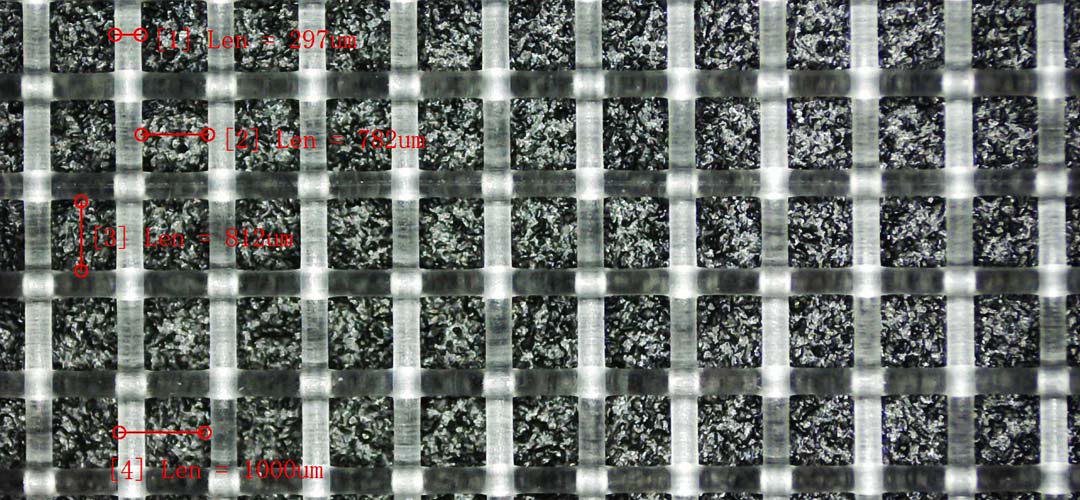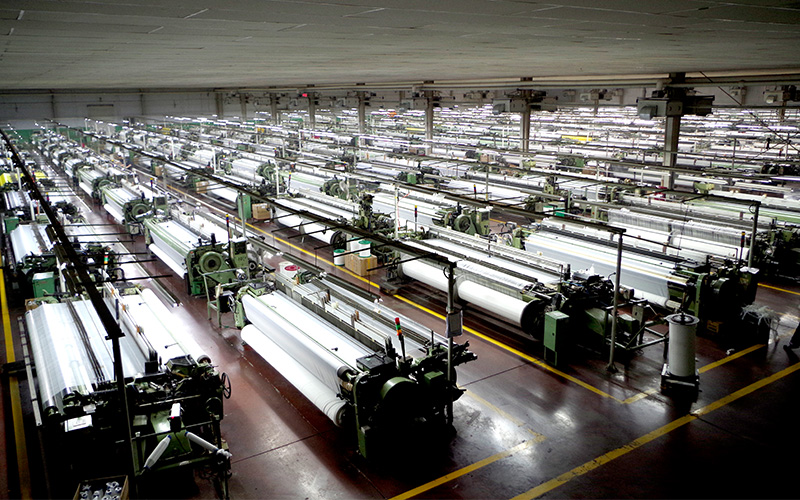Filtration is a critical process in many industries, from food and beverage production to pharmaceuticals and water treatment. The quality of filtration can have a significant impact on the final product, making it essential to choose the right filter screens for the job. Nylon mesh filter screens are a popular choice for many applications due to their versatility and effectiveness.
One of the key benefits of using nylon mesh filter screens is their durability. Nylon is a strong and resilient material that can withstand high temperatures and pressures, making it ideal for demanding filtration processes. This durability ensures that the filter screens will not break or tear during use, providing a reliable and consistent filtration performance.
In addition to their durability, nylon mesh filter screens are also highly resistant to chemicals and corrosion. This makes them suitable for use in a wide range of industries where exposure to harsh chemicals is common. The chemical resistance of nylon mesh filter screens ensures that they will not degrade or react with the substances being filtered, maintaining the purity and integrity of the final product.
Another advantage of nylon mesh filter screens is their flexibility. Nylon is a flexible material that can be easily molded and shaped to fit different filtration systems and applications. This flexibility allows for customization and optimization of the filtration process, ensuring that the filter screens are tailored to meet specific requirements and achieve the desired level of filtration efficiency.
Nylon mesh filter screens also offer excellent filtration performance. The fine mesh structure of nylon allows for the efficient removal of particles and impurities from liquids and gases, resulting in a clean and pure final product. The uniformity of the mesh ensures consistent filtration results, reducing the risk of contamination and improving the overall quality of the filtered material.
Furthermore, nylon mesh filter screens are easy to clean and maintain. The smooth surface of nylon prevents particles from sticking to the filter screens, making them easy to clean with water or a mild detergent. This ease of maintenance helps to prolong the lifespan of the filter screens and ensures continued high performance over time.

Overall, the benefits of using nylon mesh filter screens for filtration are clear. Their durability, chemical resistance, flexibility, and filtration performance make them an excellent choice for a wide range of applications. By optimizing filtration with nylon mesh filter screens, industries can improve the quality and efficiency of their processes, leading to better results and increased productivity.
In conclusion, nylon mesh filter screens are a valuable tool for optimizing filtration processes. Their unique properties make them an ideal choice for industries looking to improve the quality and efficiency of their filtration systems. By choosing nylon mesh filter screens, businesses can benefit from increased durability, chemical resistance, flexibility, and filtration performance, leading to better outcomes and higher standards of quality in their products.
Nylon mesh filter screens are a popular choice for many industries due to their durability, flexibility, and effectiveness in filtering out particles of various sizes. However, like any filtration system, proper maintenance and cleaning are essential to ensure optimal performance and longevity of the filter screens.

One of the key tips for maintaining nylon mesh filter screens is to regularly inspect them for any signs of wear and tear. Over time, the mesh can become clogged with debris, which can reduce the efficiency of the filtration system. By inspecting the screens on a regular basis, you can identify any issues early on and take the necessary steps to address them before they become more serious.
In addition to regular inspections, it is also important to clean the nylon mesh filter screens on a regular basis. This can be done by gently rinsing the screens with water to remove any built-up debris or particles. For more stubborn clogs, a mild detergent or cleaning solution can be used to help break down the debris and restore the mesh to its original condition.
When cleaning nylon mesh filter screens, it is important to avoid using harsh chemicals or abrasive materials, as these can damage the mesh and reduce its effectiveness. Instead, opt for gentle cleaning solutions that are specifically designed for use with nylon materials. Additionally, be sure to rinse the screens thoroughly after cleaning to remove any residue from the cleaning solution.
Another important tip for maintaining nylon mesh filter screens is to handle them with care during the cleaning process. Avoid using excessive force or pressure when cleaning the screens, as this can cause damage to the mesh and compromise its effectiveness. Instead, gently scrub the screens with a soft brush or cloth to remove any debris without causing any damage.
In addition to regular maintenance and cleaning, it is also important to store nylon mesh filter screens properly when not in use. Store the screens in a clean, dry area away from direct sunlight and extreme temperatures to prevent damage to the mesh. Additionally, be sure to store the screens in a way that prevents them from becoming tangled or bent, as this can affect their performance when they are put back into use.
By following these tips for proper maintenance and cleaning of nylon mesh filter screens, you can ensure that your filtration system continues to operate at peak efficiency. Regular inspections, gentle cleaning, and proper storage are all key components of maintaining nylon mesh filter screens and maximizing their lifespan. With a little care and attention, you can keep your filter screens in top condition and enjoy the benefits of clean, filtered water or air for years to come.
When it comes to optimizing filtration processes, choosing the right filter screen is crucial. Nylon mesh filter screens are a popular choice due to their durability, flexibility, and efficiency. However, with so many options available on the market, it can be overwhelming to select the best one for your specific filtration needs. In this article, we will discuss how to choose the right nylon mesh filter screen to optimize your filtration process.
First and foremost, it is important to consider the micron rating of the nylon mesh filter screen. The micron rating refers to the size of the openings in the mesh, which determines the size of particles that can pass through. The lower the micron rating, the finer the mesh and the smaller the particles it can capture. Therefore, if you are filtering out very small particles, such as bacteria or fine sediment, you will need a nylon mesh filter screen with a lower micron rating.

Another important factor to consider is the mesh count of the nylon mesh filter screen. The mesh count refers to the number of openings per square inch in the mesh. A higher mesh count means a finer mesh with smaller openings, while a lower mesh count means a coarser mesh with larger openings. The mesh count will determine the flow rate of the filtration process, as well as the level of filtration efficiency. For applications that require high flow rates, a nylon mesh filter screen with a lower mesh count may be more suitable.
In addition to micron rating and mesh count, it is also important to consider the material of the nylon mesh filter screen. Nylon is a popular choice due to its strength, flexibility, and resistance to chemicals and abrasion. However, there are different types of nylon mesh filter screens available, such as monofilament and multifilament. Monofilament nylon mesh filter screens are made from a single strand of nylon, which provides a smooth surface and excellent particle retention. On the other hand, multifilament nylon mesh filter screens are made from multiple strands of nylon twisted together, which provides a higher flow rate but may have lower particle retention.
Furthermore, it is essential to consider the construction of the nylon mesh filter screen. Some nylon mesh filter screens are woven, while others are welded or sintered. Woven nylon mesh filter screens are made by weaving together individual strands of nylon, which provides a strong and durable filter screen. Welded nylon mesh filter screens are made by fusing the strands of nylon together, which creates a seamless and smooth surface. Sintered nylon mesh filter screens are made by bonding the strands of nylon together using heat and pressure, which creates a rigid and porous filter screen.
In conclusion, choosing the right nylon mesh filter screen is essential for optimizing your filtration process. By considering factors such as micron rating, mesh count, material, and construction, you can select a nylon mesh filter screen that meets your specific filtration needs. Whether you are filtering out small particles or require a high flow rate, there is a nylon mesh filter screen available to suit your requirements. With the right nylon mesh filter screen, you can achieve efficient and effective filtration in your process.
Pre: Best Practices for Using Nylon Mesh Filter Cone Strainers
Next: Maximizing Filtration with Nylon Filter Mesh: A Complete Overview

MACROKUN has established long-term and stable cooperative relations with many transportation companies such as China Post, DHL, FEDEX, USPS, UPS, etc. Of course, MACROKUN can also provide air and sea transportation. The powerful logistics system enables all MACROKUN'S Printing Mesh, Filter Mesh and Filter Bags and so on to be easily and efficiently transported to any place. For quotes and inquiries, please email our sales team.





